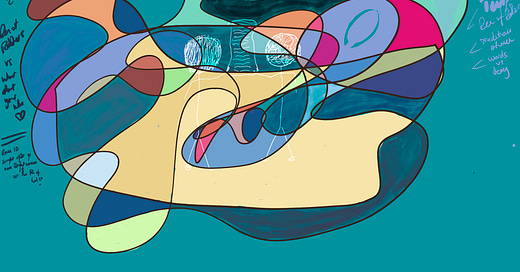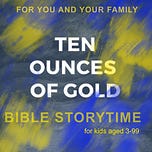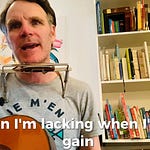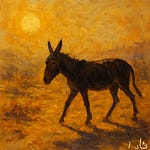Inspired by Jeremiah chapter 7 and 2 Chronicles 34 - 35
Hi everyone, in this episode we will find the context behind Jeremiah 7. Plan A is to read the chapter before your read this, to enrichen your bible reading experience.
This episode highlights one of the Apostle Paul’s message to the churches: “The law is powerless to save and to straighten our crooked human nature (bent on doing wrong), and so God made a plan … the purpose of the Law is to point us to His plan, His Son!”
THE MESSY-MANASSEH CONTEXT
Into the scene comes a young boy, Josiah, 8 years old with a crown on his head. Sitting on the throne in the City of David. His heart beat for the true God, yet he had inherited a nation that had drummed to the evil beat of King Manasseh, and the valley of Hinnom still smoked from the abomination of child sacrifice.
What could Josiah do? The land was weary, choked with the residue of King Manasseh’s reign. Idols to false gods on every hill. Injustice and corruption in every court. The temple of God hollow and lifeless whereas diviners, sorcerers and fortune tellers were in high demand through the streets. Making a good profit. Even the sun, moon and stars were sought for guidance as if they were not put there by Almighty God.
Another 8 year old boy was playing ball with his dad in the not too distant hills of Anathoth. His name was Jeremiah, and his father would tell him the stories of Almighty God, and read the words of the prophet Isaiah as they sat around the fire. Isaiah had spoken for God, to the people and even to the King … who had him murdered. (Read more here). Jeremiah knew there was a cost to following God, speaking His words. He also knew he was called to do exactly that.
Josiah and Jeremiah, they could have been friends. The same age, and the same yearning to see their people well with God, their land healed and restored to what God intended.
A DUSTY DISCOVERY
By the time Josiah turned sixteen, he began to seek the God of his ancestor David. At the age of twenty, he began to purge the land. Alters smashed, High places were torn down. The bones of pagan, false priests were scattered like ash. The people did what their king commanded, yet their hearts sat on the fence, watching.
And then at twenty six years old Josiah found something that brought him to his knees, tearing his clothes and beating his breast with the knowledge that he and his people had drifted so far from Almighty God, Yahweh’s plan:
Josiah had ordered the cleansing of the Temple. And the work was underway — money being collected; stone, timber, lumber and beams bought; carpenters and stonemasons energetic under the leadership of Jahath and Obadiah. The Levites who were skilled musicians played background music unto the Lord while the building progressed and accountants reported every coin well spent.
And then, there it was: A forgotten scroll, Hilkiah the High Priest blew off the dust and saw the old words written by Moses himself.
King Josiah saw then what Jeremiah already knew. The peoples hearts, their lives were intent on evil. They had forgotten God, and the God who had brought them out of Egypt and through the red sea, who had rained down manna from heaven and brought water from the rock, who had led them by fire and cloud — had every right to be angry.
IT WAS TIME FOR CHANGE
Josiah tears flowed to his very heart, and stirred him to action. He removed all the idols from the areas occupied by the Jews and required all of them to worship their God, Yahweh.
Then Josiah announced that the Passover would be celebrated on the first day of April in Jerusalem. All Jerusalem took part in the Passover observance, and then a seven day holiday to commemorate their exodus from Egypt. The festivity was electric and never since the time of Samuel the prophet had there been such a Passover celebration.
King Josiah smiled. Surely the stage had been set for a new beginning. Surely the people would dedicate themselves to please the LORD and not themselves.
If you were on the outside looking in, you would have thought they did. The Temple service was overflowing, the collection box was full, the choir sang, and the peoples voices rose on cue, they danced on the right beat and slowed at the right time. The smell of incense rose and the whole experience was quite beautiful.
But if you walked the streets. A different smell would reach your nostrils. You might notice the weights on the scales in the market place, merchants lying and cheating. You would see the poor left with nothing while the rich enjoy their plenty. As you keep walking you may notice children left to themselves, everybody blind to the fact that they have no parents to guide them. As you look for a place to stay the night you are shocked to see that foreigners pay double for half as much, they are robbed of their goods and treated like criminals. (A good note to those who reject the refugees)
And as you turn the street corner you see one of the leaders from the Temple. Joking and laughing with a group of men, not a laugh that makes you smile, but one that brings a chill to your bones because it’s clearly at the expense of others.
A LOVING FATHER WARNS HIS CHILDREN
You near the Temple Gate, things start to look much holier again. But this time you are unsettled and then you hear a voice.
A den of robbers, that is what you have made this Temple. You say ‘The Temple’, ‘The Temple’ as if having stones consecrated to God can spare you from the destruction you deserve. I see a band of robbers, for six days they steal, exploit, rob and destroy and when they are found: Their cheeks do not even blush with shame. Once a week they gather in their den to laugh and find honor amongst themselves.
Are you not a band of robbers and have you not made this Temple a Den of Thieves?!
The words ring out, and you look to see if their is any response. Yet the peoples eyes are glazed over, as if their ears to dull to hear words that should pierce every heart.
“Come my people, the ground of your heart is fallow and unploughed. Break it up so that my words can come to you. Yet look! You run backward and not forward. Have you not see the signs go before you ? Have you not seen the city of Shiloh end in ruin and even your people Israel exiled? Yet you persist in doing your own way! ”
You notice tears on the prophet’s cheeks. With fire in his bones, he is sad because he speaks to people that do not hear.
That night you do not sleep well. Firstly because of the prophets words stirring your heart, and secondly because you were charged triple the price by the innkeeper. (gulp)
TWO YOUNG MEN. TWO FIRES.
One wielded policy, and taught the people to look good on the outside.
The Other brought prophecy, showing the people their need to change from the inside.
Josiah, bright and brave, would not live to see what came next. He died too soon, in a battle he should not have fought. His reforms, though noble, faded as quickly as the hypocritical tears from Judah’s cheeks.
Jeremiah could expose the disease, but he began to realise that only the Spirit of God could heal the heart of the people.
MANY YEARS LATER AND INTO TODAY
Jesus often quoted from Jeremiah. He spoke to the teachers and religious rulers of his day. “You clean the outside of the cup, yet the inside is full of self-indulgence and greed.” He spoke to a people who used a service, a song, a sermon for their own gain and thought they could hide behind their religious exterior.
Josiah, with the Law, brought an outward change. Jeremiah longed to see an inward change. And we know today that the Law’s purpose it to point us to see our need for Christ.
And so came Jesus, who would not only cleanse the Temple but cleanse us. And the law would be written not on stone tablets, but on our hearts.
What neither the old covenant, neither the hammer nor the scroll could ever accomplish - Jesus would bring, as Jeremiah would soon see:
🔥 True, lasting, Spirit-Born Transformation.
⚖️ Final Reflection
This story captures something vital for the Christian believer, something that the Early Apostles would teach and expand. The Mosaic covenant with it’s laws and observances is obsolete, it has been replaced by the New Covenant through the blood of Jesus Christ.
One kills, the other gives life. One gives power to sin and brings death while the other brings grace to walk in the life of the Spirit.
A few small questions to help you and your family reflect:
What was the good King’s name in our story?
How old was he when he became King?
What is God more concerned with?
A: What we look like on the outside
B: What our lips say
C: What we think in our minds, and do with all our heart
Discuss with your family what it means to be wholehearted.
I look forward to seeing you next time. With Jeremiah, we will discover more about the God who is in charge of History and is interested in your story.
Stay tuned, see you next time.
To be continued
If you have enjoyed this publication - Help others find it by liking, commenting, sharing. It will be a great support.
‘Buy me a coffee’ is a great way for a once off donation to show your support. I hope you feel inspired and ready for more to come.
I look forward to seeing you next time. Please listen to this song I wrote that is inspired by Jeremiah, I would live to hear your thoughts. Check it out HERE :)
And if you made it this far please feel free to contact me and we can connect !!
















Share this post